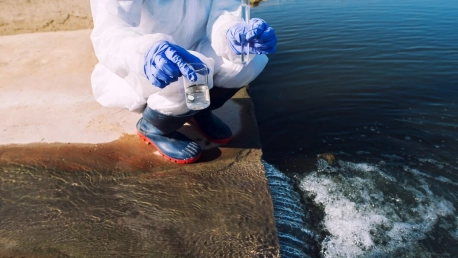Pioneering research by experts from Colorado State University, the University of Colorado Boulder, and Brigham Young University is ushering in a transformative approach to wastewater treatment, endorsing the integration of green infrastructure. Their study not only illuminates the substantial environmental benefits, such as reduced carbon footprints, but also illustrates potential cost savings for public utilities. This innovative research serves as a clarion call for integrating ecological considerations into wastewater management while unveiling the promise of economical benefits. With the dual incentives of environmental stewardship and financial prudence, this investigation beckons a new chapter in the United States’ approach to wastewater treatment, favoring methods that align with nature.
Transitioning to Green Infrastructure
Researchers are shining a light on the alternative pathways for managing our wastewater through the adoption of nature-based solutions. Such green methods include establishing constructed wetlands and undertaking reforestation efforts, both of which stand as more sustainable counterparts to conventional sewage treatment plants. The study draws a stark comparison between the traditional practices and their green alternatives, pointing to a future wherein embracing eco-friendly strategies could lead to significant financial and ecological advantages. By implementing these greener methods, the research projections indicate that there might be savings of roughly $15.6 billion over a 40-year span, as well as a considerable drop in carbon dioxide emissions, to the tune of nearly 30 million tons.These strategies underscore a critical shift in the treatment of wastewater. By utilizing the strengths of natural processes, communities can minimize their environmental footprint while also achieving monetary savings. This change is not merely theoretical but is rooted in a comprehensive analysis backed by data from over 22,000 U.S. wastewater facilities. It’s clear that green infrastructure can serve as a bastion of economic prudence and environmental stewardship.
Financial and Ecological Incentives
Researchers have pinpointed carbon financing as a pivotal motivator for the shift to greener wastewater treatment technologies. By capitalizing on carbon credits, environmentally friendly efforts become financially rewarding within a regulated market context. This not only propels adherence to strict environmental standards but also encourages the economic viability of sustainable practices. The potential to generate approximately $679 million annually through carbon markets is a considerable incentive for wastewater facilities. This approach notably redefines utility management, balancing ecological responsibility with financial feasibility. Such financial backing is vital for utilities aiming to enhance green operations without financial strain, ensuring that compliance goes hand in hand with environmental stewardship for the collective good.
Addressing Non-Point Source Pollution
Confronted with the widespread problem of non-point source pollution, predominantly from agricultural activities, researchers are underscoring the vital role green wastewater methods can play in mitigating this issue. By taking advantage of nature’s inherent filtering capabilities, these innovative strategies can effectively address pollution challenges that are otherwise difficult to contain and manage. The integration of such nature-based solutions actively contributes to improving water quality, presenting a compelling case for their adoption beyond the mere reduction of carbon footprints.The narrative put forth by the Colorado State University-led study advocates for comprehensive solutions—combining efforts to resolve localized water treatment challenges with the overarching goal of global carbon emission reduction. The sophisticated approach of embracing green technology in wastewater infrastructure acknowledges and confronts multiple environmental issues simultaneously, advocating for water management strategies that are resilient, sustainable, and cognizant of the interconnectedness of natural systems.
Future of Integrated Water-Quality Management
Colorado State University’s team is pioneering an integrated approach that unifies water and air quality efforts, charting a new path for sustainable water-quality management. This innovative perspective encourages the development of combined strategies that offer multi-benefit solutions. The study’s implications urge further exploration into tailored carbon credit systems, vital for advancing green wastewater treatment technologies and their widespread adoption.Maintaining the momentum of this research is critical for crafting detailed, universally applicable strategies for water treatment. Nature-based solutions are poised to become a key element in the environmental strategies of water treatment facilities, setting a new benchmark for ecological responsibility in managing our most vital resource. The ongoing pursuit of these sustainable practices holds promise for future conservation successes.
A Synergy of Environmental and Economic Goals
A recent study outlines a transformative approach in the overlap of economic efficiency and environmental conservation via green wastewater treatment technologies. This research serves as a blueprint marrying cost-effectiveness with ecological care, crucial in the extensive fight against climate change and natural resource depletion.The study advocates for a shift in infrastructure strategy towards sustainability, stressing the importance of symbiotic goals where economic vitality bolsters, rather than detracts from, ecological health. It calls for a critical reassessment of our water management systems, to embrace practices that ensure environmental well-being parallels human advancement. Herein lies the key to a future where the prosperity of our planet and its people are integrated objectives, seamlessly intertwined.









